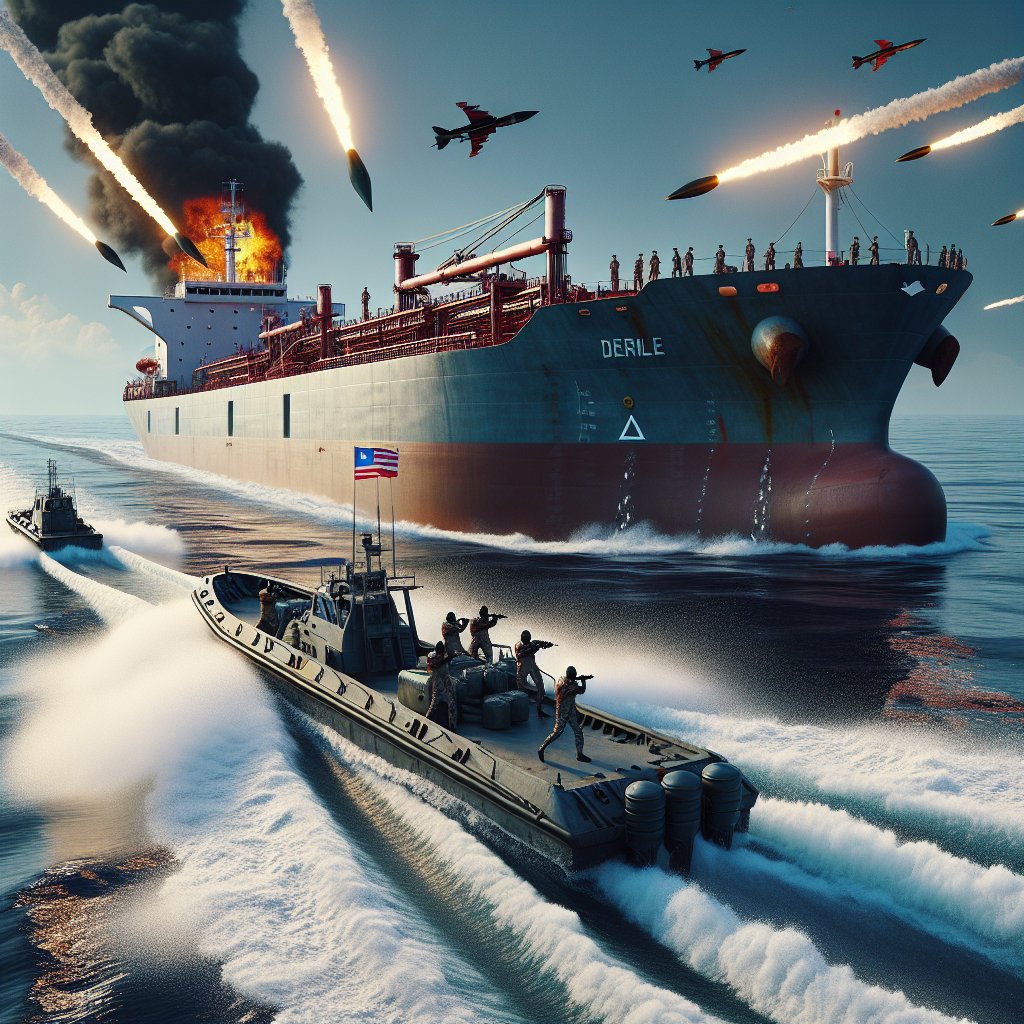Image created by AI
Maritime Security Alert: Oil Tanker Survives Multiple Attacks off Yemen's Coast
In a concerning development for international maritime security, a crude oil tanker experienced a series of hostile encounters off the port of Mokha in Yemen, signaling an escalation in regional tensions. Over the course of 24 hours, the tanker, managed by Athens-based Delta Tankers, was subjected to four separate attacks, as reported by the United Kingdom Maritime Trade Operations (UKMTO) agency on Friday.
Situated in a strategic maritime location, the port of Mokha has become a volatile flashpoint amidst Yemen's complex conflict. The Iran-aligned Houthi militants, embroiled in a long-running war with a Saudi-led coalition and in stated support of Palestinians in the conflict with Israel, have repeatedly targeted international shipping routes, particularly those traversing the Red Sea region.
The vessel under assault, the Delta Blue, sailing under the Liberian flag, was first approached by two small craft, each with four individuals aboard. They launched a rocket-propelled grenade which detonated in close proximity to the ship roughly 45 nautical miles south of Mokha. Within hours, an additional missile exploded near the tanker, compounding the peril for the crew onboard.
Escalating the situation, another attack the following day involved an uncrewed surface vessel, followed by a missile strike near the Delta Blue. Despite this flurry of aggression, the ship's manager confirmed the safety of the crew and the vessel, noting that the Delta Blue is continuing its voyage.
The US and the UK have engaged in retaliatory actions, aiming to curtail the risk posed by the Houthis to international maritime activity. US Central Command (Centcom) reported on Wednesday strikes against multiple targets in Houthi-controlled regions of Yemen, targeting drone capabilities, a ground control station, and several anti-ship cruise missiles.
The continuous assaults by the Houthis, including claimed attacks on another Greek-owned container ship in the Red Sea and two US destroyers in the Gulf of Aden, have raised the specter of a serious disruption in global trade. As a result, shipowners are recalculating routes, favoring a lengthy circumnavigation around the southern tip of Africa to avoid the precarious passage through the Red Sea and the Suez Canal.
These disturbances underscore the hazardous conditions that prevail in one of the world's most significant maritime passages. The safety of vessels and their crews in this region remains precarious, with these recent incidents marking a concerning uptick in maritime violence, potentially threatening the vitality of international trade routes.










